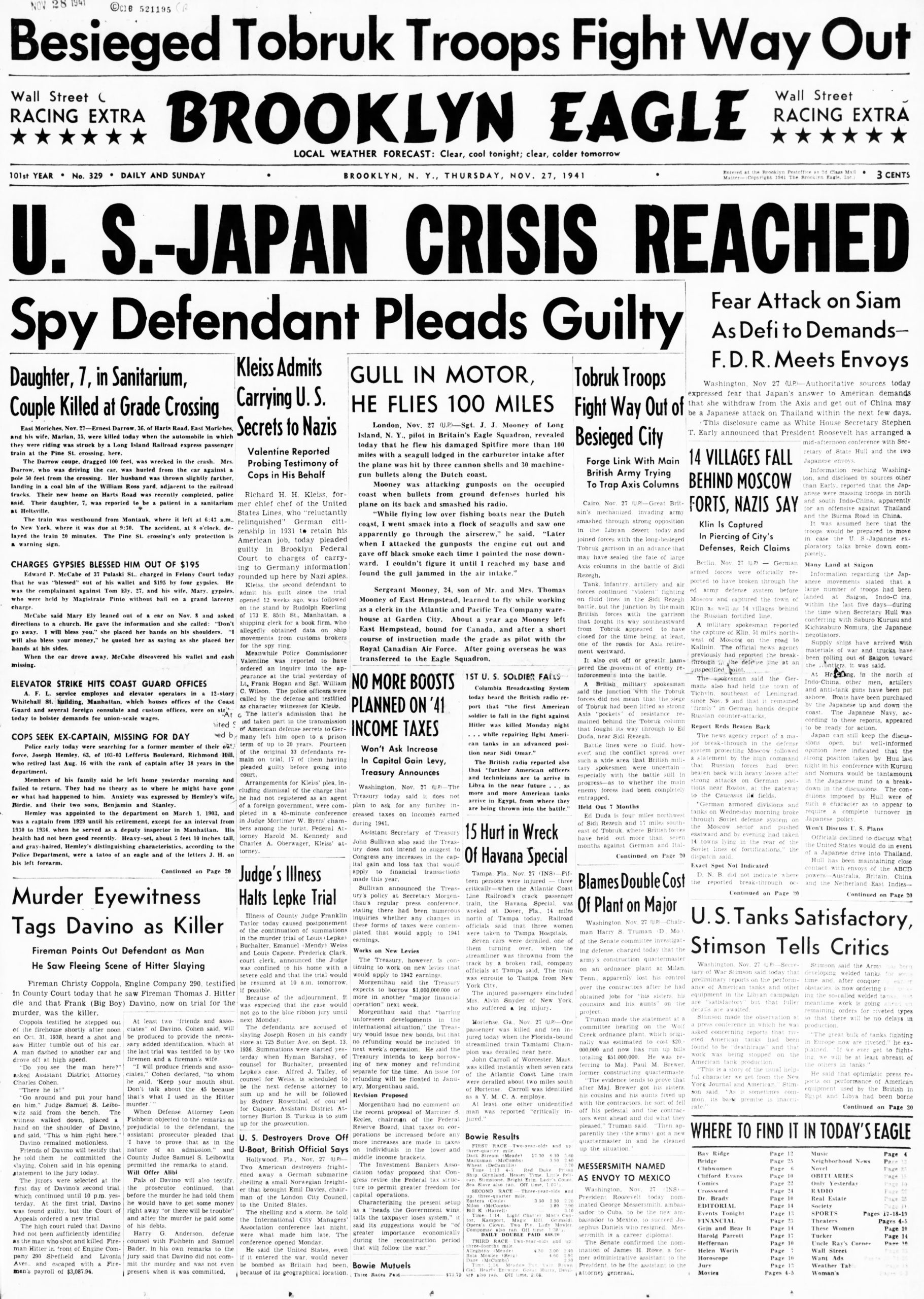November 27: ON THIS DAY in 1941, U.S.-Japan crisis reached

ON THIS DAY IN 1863, the Brooklyn Daily Eagle reported, “In conformity with the conjoined request of President Lincoln and our own authorities, yesterday was observed for thanksgiving and prayer. Its observance was very general, all places of business being closed, the issuing of newspapers being suspended and the places of worship in all sections of the town being open for service. A more beautiful day was rarely known, and the general tone of gratitude harmonizing gracefully with the beauties of the outer world was heighted to the utmost by the cheering news sent from Grant at Lookout mountain and conveyed by successive Eagle extras to the thousands of expectant hearts in Brooklyn.”
***
ON THIS DAY IN 1938, the Eagle reported, “A few weeks ago when Orson Welles put on his radio version of the ‘War of the Worlds,’ the nation was swept into widespread panic as thousands of hysterical men and women made preparations to flee from invading Martian monsters. The radio audience has become more sophisticated since then. Yesterday afternoon when the Radio Playhouse Experimental Workshop broadcast a thriller over municipal Station WNYC about an unnamed foreign power which shot a rocket containing poison gas into this country, listeners took it in stride. Police Headquarters in Brooklyn and Manhattan reported they received not a single call and the radio station declared no one had telephoned asking if it were true … Director [Ted] Cott explained later that the radio group had no fear that the fantasy would be taken for the real thing. ‘The audience should be trained against panic by this time,’ he said.”

Brooklyn Boro
View MoreNew York City’s most populous borough, Brooklyn, is home to nearly 2.6 million residents. If Brooklyn were an independent city it would be the fourth largest city in the United States. While Brooklyn has become the epitome of ‘cool and hip’ in recent years, for those that were born here, raised families here and improved communities over the years, Brooklyn has never been ‘uncool’.